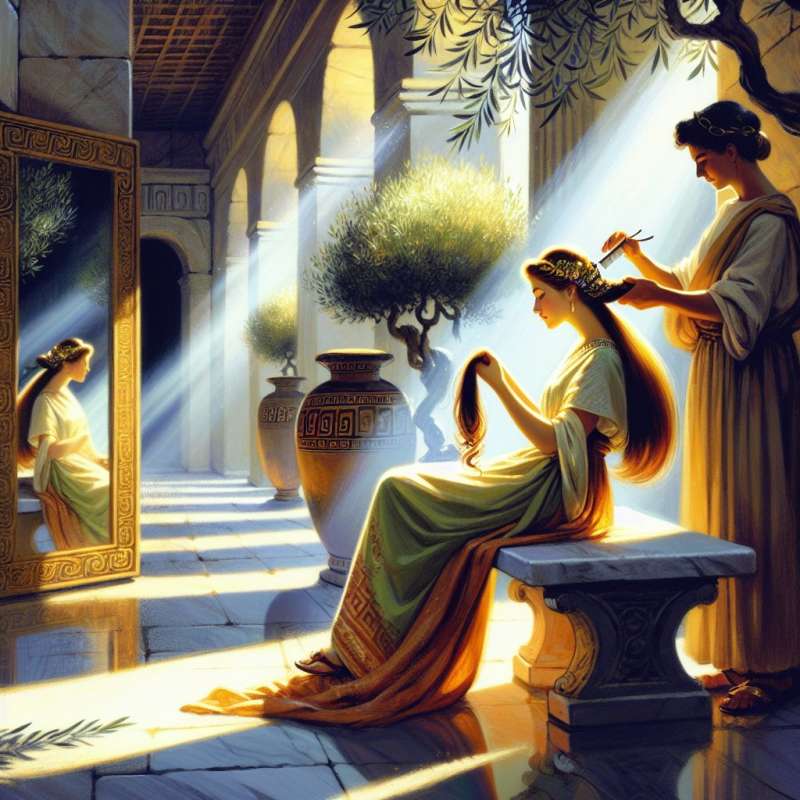
Ancient Hair Significance
In ancient civilizations, hairstyles held great cultural significance. Egyptians shaved heads for cleanliness and wore wigs. Sumerians innovated hair curling using heated rods, signifying wealth and status.
Greek Hairstyling Artistry
The Greeks viewed hair as a form of art. Golden hairnets, tiaras, and ornate combs were prevalent. Elaborate hairstyles, such as the 'Krobylos' knot, were popular among both men and women.
Roman Hair and Identity
For Romans, hair indicated social status. Noblewomen employed hairdressers called Ornatrices. Intricate braids and high-piled styles were favored, with hair dyeing becoming fashionable to emulate the exotic.
Medieval Hair Concealment
During the Middle Ages, European women often concealed their hair for modesty, using wimples and veils. Men's hair was usually short, with knights sporting specific cuts signifying their order.
Renaissance Elaborate Coiffures
The Renaissance era saw a return to elaborate hairstyles. Women used pads and wires to create high, voluminous structures, adorned with jewels and intricate braiding. Men grew longer hair, often with beards.
Victorian Hairstyling Morality
In Victorian times, hairstyles became simpler as a reflection of morality and modesty. However, the use of false hairpieces and the innovation of the Marcel wave curling technique in the late 19th century marked a subtle shift towards modern hairstyling.
20th Century Style Transformations
The 20th century saw rapid transformations. The 1920s flapper bob cut challenged traditional norms, the 60s brought the beehive, and the 80s indulged in perms and voluminous hair. Each decade had a defining style that reflected cultural shifts.
Why did Egyptians shave their heads?
For artistic expression
Signifying wealth and status
For cleanliness reasons
Company